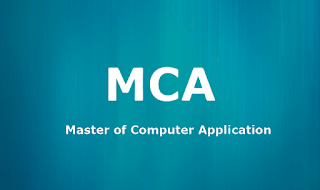Masters in Computer Application (MCA): Bridging the Future of Technology
Introduction:
A Master's in Computer Application (MCA) is a prestigious and highly sought-after postgraduate program designed to equip individuals with advanced knowledge and skills in the field of computer science and technology. With technology's continuous evolution and its integral role in various industries, pursuing an MCA can open doors to a wide range of career opportunities and contribute significantly to personal and professional growth.
Why Pursue an MCA:
Holistic Skill Development: MCA programs provide a comprehensive curriculum that encompasses a blend of theoretical knowledge and practical skills. Students delve into subjects like programming, database management, software engineering, networking, and algorithms, honing their expertise across diverse domains.
Industry Relevance: In a rapidly evolving technological landscape, MCA graduates are well-prepared to adapt to emerging trends and contribute effectively to industries like software development, cyber security, data analytics, artificial intelligence, and more.
Lucrative Career Opportunities: MCA graduates are in high demand across industries due to their ability to design, develop, and maintain software applications. They can pursue roles such as software engineer, system analyst, web developer, data scientist, and IT consultant, among others.
Entrepreneurial Ventures: Armed with strong technical skills, MCA graduates can venture into entrepreneurship by developing innovative software solutions, apps, and services to address specific market needs.
Research and Innovation: Many MCA programs emphasize research, fostering an environment where students can contribute to cutting-edge advancements in technology through projects, dissertations, and collaborations with faculty.
Specializations and Electives: MCA programs often offer a plethora of specialization options to cater to students' interests and career aspirations.
Some popular specializations include:
Software Engineering: Focusing on the principles of designing, developing, testing, and maintaining high-quality software solutions.
Data Science and Analytics: Exploring techniques to analyze and interpret complex data sets to drive informed decision-making.
Artificial Intelligence and Machine Learning: Delving into the realms of AI, neural networks, and machine learning algorithms to develop intelligent systems.
Cyber security: Equipping students with the skills to safeguard digital assets and counteract cyber threats.
Program Structure and Delivery:
MCA programs typically span two to three years and follow a structured curriculum comprising foundational and specialized courses. Many programs integrate hands-on projects, internships, and real-world case studies to ensure practical application of concepts. With the advent of online education, several institutions offer flexible learning options, allowing working professionals to balance their studies with other commitments.
Conclusion:
A Master's in Computer Application is a transformative journey that empowers individuals with the tools and knowledge needed to thrive in the dynamic world of technology. As the digital landscape continues to evolve, MCA graduates are poised to make meaningful contributions, drive innovation, and shape the future of technology across industries. Whether aspiring to become a software architect, data scientist, or tech entrepreneur, an MCA opens doors to limitless possibilities, making it a worthy investment in one's education and career.





Post a Comment